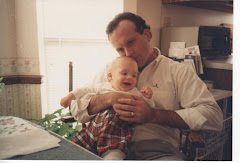Local television sports departments across the country are quivering right now. Their very existences are being threatened. This is not hyperbole. The National Football League is reportedly taking a step that will go a long way toward rendering local sports departments essentially superfluous.
I’ve stepped away from the media for the most part. I say “for the most part,” because it’s proven to be impossible for me to divorce myself emotionally from a lifestyle I embraced (endured?) for 27 years. I reacted with some emotion when I read that NFL owners had voted unanimously to ban local television cameras from the sidelines of all of their games. They can do it. Apparently, they have done it. But, we don’t have to like it.
The Radio & Television News Directors Association (RTNDA), of which I was a member until the end of 2005, has reacted strongly. Here’s part of a letter the RTNDA sent to the NFL:
RTNDA members include the news directors at local stations in every city with an NFL franchise. These stations cover the activities of their local NFL teams, providing news and information of great interest to the local community. RTNDA members began contacting our Washington headquarters yesterday as they learned about this discriminatory and unprecedented policy. They are deeply concerned that NFL team owners have taken such action without announcement, consultation or consideration of the broader impact on public interest. RTNDA’s members are hard-pressed to understand the rationale behind your decision, which effectively prohibits coverage of NFL games by television reporters. Even private entities should not be allowed to engage in behavior that impedes the media’s right to gather and disseminate public information such as information about sporting events. Certainly, severely restricting the rights of the electronic media to gather news in publicly funded stadiums raises significant First Amendment questions. When electronic journalists are denied the ability to report on a news event with their own microphones, cameras and production crews, it allows newsmakers to determine the content of the news, a result that is inconsistent with our society’s democratic values. This week’s decision gives no weight to the public’s interest in the free flow of information and access to events that define our national culture. As a vital and highly respected American institution, the National Football League should not be in a position of subverting the American tradition of a free press. Because your policy distinguishes between still photography and video cameras, it discriminates against television journalists, and interferes with the public’s ability to get information from a wide variety of sources. By banning local television coverage, this policy harms the local stations’ ability to serve the public and has the potential to damage the bonds between the NFL franchise and the community. For all of these reasons, we strongly urge you to reconsider your policy, and continue permitting television journalists to use the tools of their trade to independently and accurately bring information to the public about NFL games.
I couldn’t have said it better myself. In fact, I wish I had written it. Rarely do I run across anything that crystallizes my thoughts exactly, but this does it.
I got an e-mail from a TV photographer I know who works in Atlanta. He said a “local boycott” of the NFL by Atlanta televisions stations is being discussed seriously. I sincerely doubt that will work out. The NBC and FOX stations, in particular, will be under great economic pressure to support their networks’ investment into the NFL product. It’s virtually impossible to get competitors to work together on anything, anyway…even if it serves their mutual interests.
The fact remains; the NFL has all the leverage here. Even without local stations, the league certainly will not operate in anything close to a vacuum. Sadly, the local stations need the NFL and its teams significantly more than the NFL needs the local media. The league has the national media. In fact, two broadcast networks and a cable network have paid hundreds of millions of dollars to the NFL for the right to show their games. Nobody’s boycotting anything.
Did I say this move is a step toward rendering local sports departments superfluous? Don’t dismiss this notion as preposterous.
Not long ago, I was at an RTNDA sponsored seminar in Washington, DC. The other local television executives there had no idea I had a decades-long background as a sports director. We were sitting around at dinner one night and every single one of those news directors and managing editors was complaining about their sports departments. One, in fact, was absolutely reveling in the fact that he had shut down his sports department. He was bragging that he had locked the door to the sports office, moved the editing system into general use and had let the main sports anchor go while transitioning the weekend guy into the general assignments reporter pool.
An assistant news director from an NFL market was complaining about his sports department’s use of manpower, saying “We shoot all this ground-level video, and then I watch our newscast and see highlights cut from the network feed. What are we paying these guys to do?” There is a growing sentiment among local TV management and ownership that the local sports departments are not worth the salaries and operating expenses associated with them.
An exception to that may have been most NFL markets, where the team captures the fascination of a large percentage of viewers. The local stations can do local features and special programming to cater to those fans. Removing local cameras from the sidelines will make that pursuit significantly more challenging. It might also be more expensive if the NFL starts charging for the right to uses its video.
Make no mistake about it: this is an unsettling, frustrating and possibly frightening time for local TV sportscasters. I hope for their sakes that the RTNDA wins this fight for them.
Wednesday, April 05, 2006
NFL Owners Deny Local Stations
Posted by
Darrell
at
4/05/2006
![]()
![]()
Subscribe to:
Post Comments (Atom)














No comments:
Post a Comment